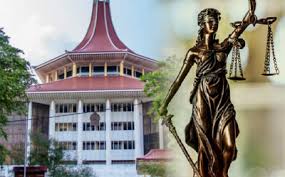The Incidents of assault and Inhuman treatm ent com plained of which w ere a
sequel to travel in a bus, have been established. The Police Officers, acting
under the colour of office assaulted the petitioner and subjected diem to inhuman
treatm ent but the identity of the p articu lar officers who could have been
personally responsible has not been established. Hence only the State would be
obliged to pay compensation.
Of consent, the above two applications were consolidated and
heard together. The petitioner in application No. 4 (“1st petitioner”)
was the driver and the petitioner in application No. 3 (“2nd
petitioner”) was the conductor of a private omnibus plying between
Fort and Homagama in which the 3rd respondent (a Police Constable
attached to the Police Headquarters as a driver) was travelling,
having boarded the bus at a bus stop in the Slave Island area at
about 7.00 p.m. on 05.01.91. These applications are a sequel to an
incident which occurred between the 3rd respondent and the
petitioners inside the bus on account of which the petitioners were
arrested by police officers on mobile duty and were taken to the
Slave Island Police Station. The petitioners complain that whilst they
were in police custody they were subjected to assault and other
treatment violative of Article 11 of the Constitution.
For the foregoing reasons, supreme court grant a declaration to the petitioners
that their rights under Article II of the Constitution have been infringed
by executive or administrative action. In the particular circumstances
of this case, supreme court consider it just and equitable to grant the 1st petitioner
compensation in a sum of Rs. 5000/- (Rupees Five Thousand)
together with costs in a sum of Rs. 750/- (Rupees Seven Hundred
and Fifty) and the 2nd petitioner compensation in a sum of Rs. 3000/-
(Rupees Three Thousand) together with a sum of Rs. 750/- (Rupees
Seven Hundred and Fifty) as costs. supreme court direct the State to pay the said
sums to the petitioners. As the petitioners have failed to establish
personal responsibility on the part of the 1st, 2nd, 3rd and 4th
respondents, supreme court dismiss the applications against them, but without
costs.

